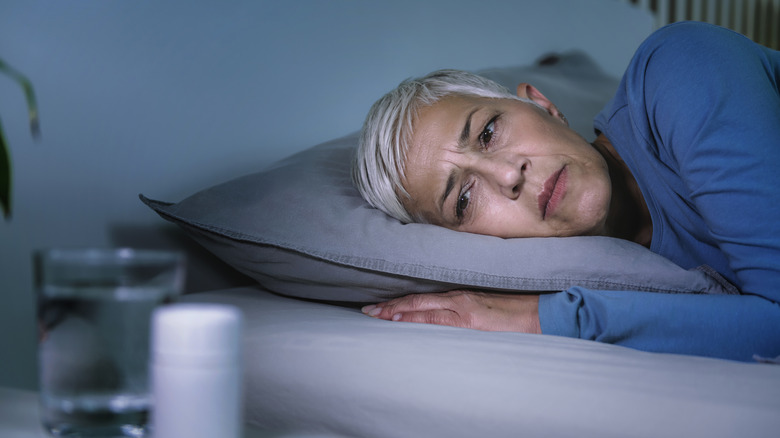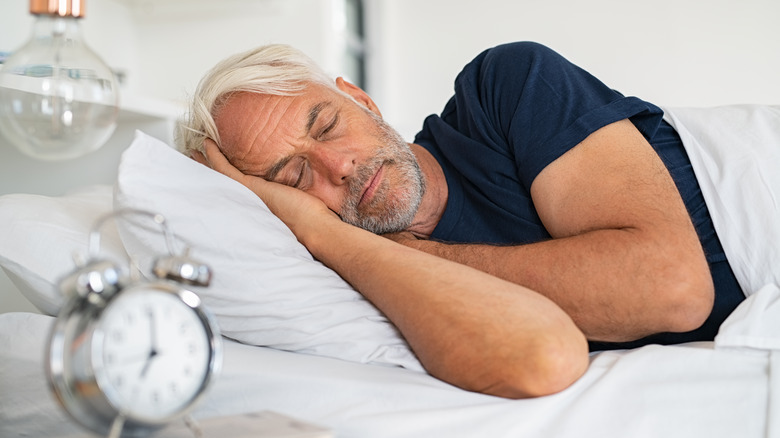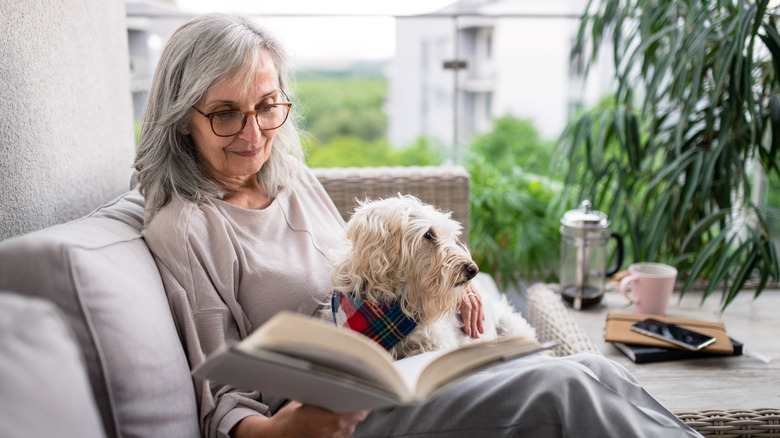Tricks To Fall Asleep Faster When Insomnia Hits You Hard After 50
People over 50 know restless nights well. Insomnia doesn't hit the day you blow out 50 candles on a cake. Instead, it's a gradual decline of a good night's sleep that comes from years of stress and less-than-healthy habits. Your body also secretes less melatonin when you get older, which can affect your ability to get to sleep. Before women reach menopause, they're likely to experience night sweats that can make it difficult to sleep. You also might find yourself needing to pee just as you reach a relaxing slumber.
According to the National Institutes of Health, insomnia is even more common when you reach 60. You could experience several sleep disruptions, or you could find it harder to get to sleep, which is called sleep onset. If you have healthy sleep patterns, the Sleep Foundation says it should only take about 20 minutes to fall asleep. Yet older adults, particularly 36% of women, say it takes them 30 minutes or more to fall asleep, according to the American Academy of Sleep Medicine. One trick that everyone, including people over 50, could use to fall asleep faster is to avoid heavy evening meals.
Fall asleep faster by establishing a sleep schedule
As you get older, you might laugh as you remember the many nights you stayed up well after midnight. You realize that those days are behind you, and you go to bed much earlier, sometimes 8 p.m. That also might mean shifting your evening meals earlier. A heavy meal before bed runs the risk of giving you digestive problems such as acid reflux, which is exacerbated when you lie down. When you eat late, you're using active energy to digest food rather than respecting your body's circadian rhythm.
Your sleep can easily be disrupted if you experience frequent changes in your sleep schedule. When you're older, it takes longer for your body to adjust to these changes. Therefore, you can fall asleep faster if you stick to the same sleep schedule every day. Even if you're exhausted in the late afternoon or early evening, avoid taking a nap so you can be sure you'll be tired when it's time for bed.
Create good evening habits to help you fall asleep faster
An early dinner and regular bedtime might not be enough to get you quickly to sleep if you use nicotine, alcohol, or caffeine in the evening hours. Dial back 6 hours from your bedtime to know when you should stop consuming caffeine. Alcohol might help you relax, but it also can disrupt your sleep. The Sleep Foundation says your last sip of alcohol should be no later than three hours before bed, and nicotine use should stop four hours before your head hits the pillow.
If you can't fall asleep, find a relaxing activity to prepare your body for sleep about an hour before bed. A yin yoga class, breathwork, reading, or journal writing helps unwind your mind and body from an active day. Watching television might be your way to unwind, but something arousing such as an action movie, a cable opinion show, or a suspenseful drama can keep you awake. Not only that, but the blue light from your television screen, computer, or phone signals to your brain that it's still daytime and can make it more difficult to sleep. It's better to shut off electronic devices within an hour before bed.


